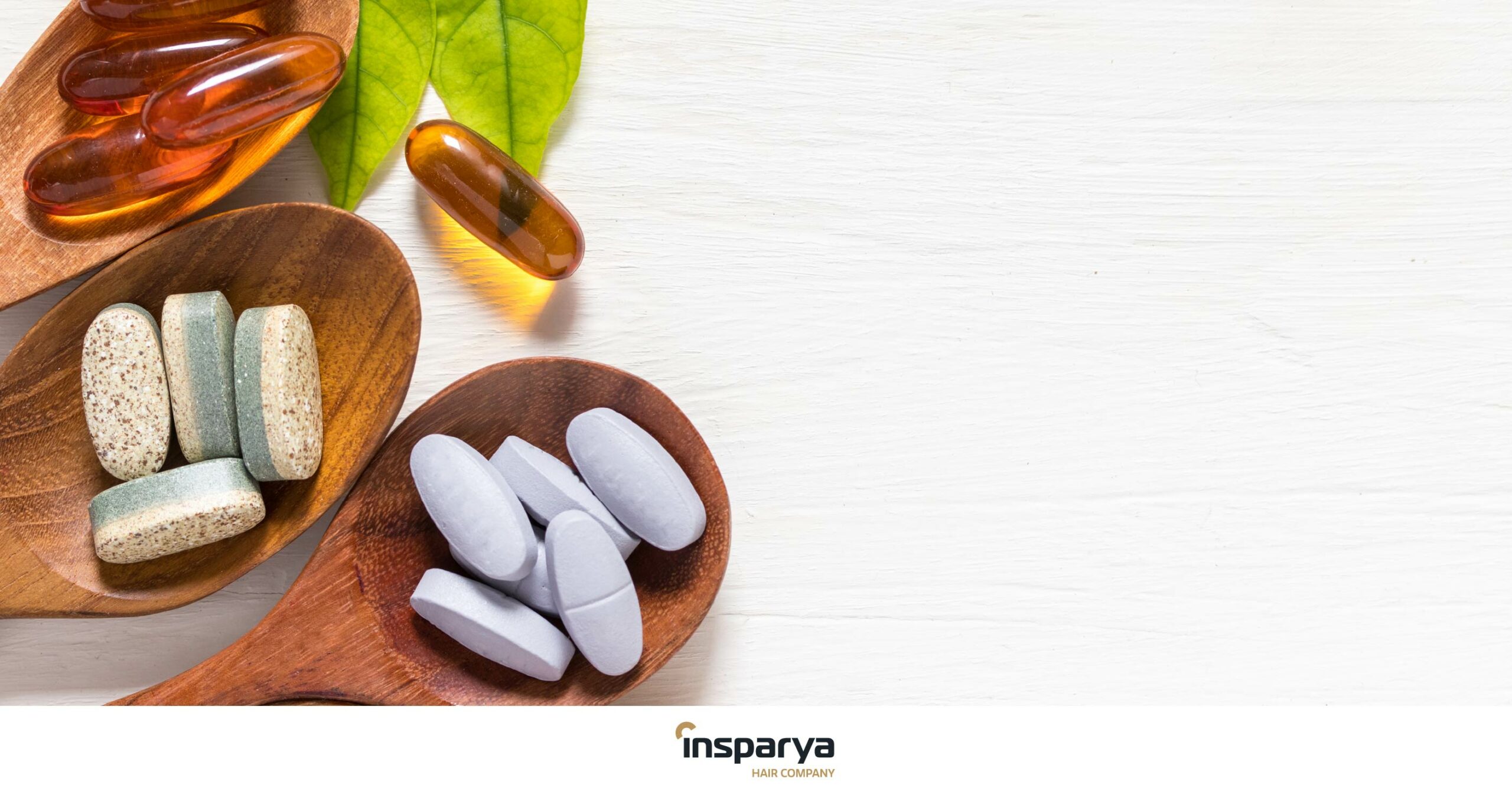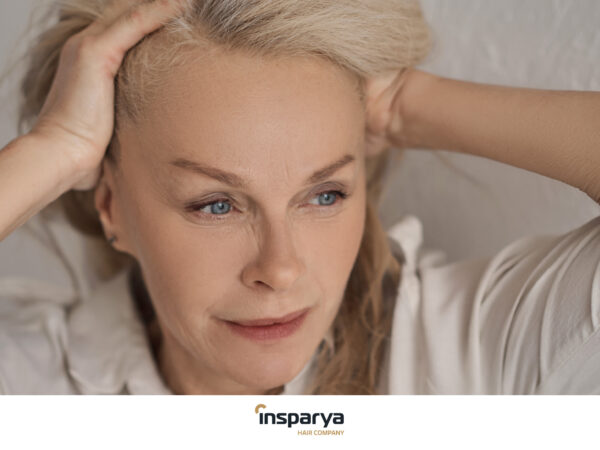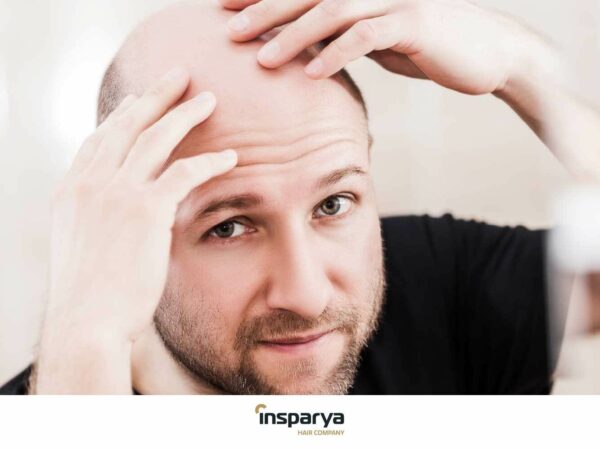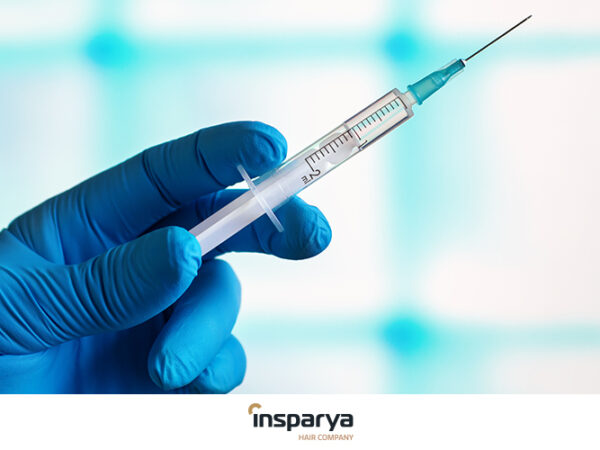
Vitaminas para el cabello
La salud del cabello se ve afectada por factores muy diversos, pero sin duda una dieta saludable que aporte los nutrientes necesarios resulta clave para lucir una melena fuerte y saludable. Las unidades foliculares necesitan una serie de nutrientes que reciben a través de la circulación sanguínea. Estimularla y conseguir que llegue a cada cabello la cantidad de vitaminas, minerales y oxígeno precisos para su normal desarrollo es una de las medidas más importantes a la hora de cuidar el cabello y prevenir su caída.
Además de con la alimentación, podemos aportar vitaminas al pelo a través de suplementos pautados por un médico especialista, en el caso de detectarse alguna deficiencia. También el uso de champús nutritivos y la aplicación de tratamientos capilares son una forma de añadir un extra de vitaminas, minerales y factores de crecimiento al cabello. Pero no olvidemos que tener una alimentación completa, variada y equilibrada es clave para nuestra salud integral y, por tanto, también para la de nuestro cabello.
Pero, ¿qué vitaminas son necesarias para el cabello? A continuación, enumeramos las que no deben faltarte para mantenerlo sano y prevenir la caída.

Vitamina A
Posiblemente te suene como retinol. Es un potente antioxidante que previene el envejecimiento del cabello. Además ayuda a mantenerlo hidratado al regular la producción de sebo, algo especialmente importante en los meses de verano, todo esto sin olvidar su función esencial en la reproducción celular y el crecimiento del pelo..
La vitamina A también es clave para el sistema inmune, promueve el crecimiento celular y ayuda a prevenir la pérdida del cabello. Si buscas alimentos ricos en vitamina A, anota: zanahorias, lechuga, batata, leche, espinacas, brócoli, huevos, hígado y pescados grasos, como por ejemplo el salmón.
Vitamina B
Este grupo de vitaminas es imprescindible para una buena salud capilar. Seguro que has oído hablar de la vitamina B7 o biotina y su importancia para el cabello, las uñas y la piel. Tiene un papel directo en la estimulación de la síntesis de queratina. Por eso es un nutriente que suele formar parte de la composición de champús anticaída. Su deficiencia provoca que el cabello se vuelva débil y fino, hasta llegar a caerse.
Además de en productos y tratamientos capilares, podemos incluir en nuestra dieta alimentos ricos en biotina. Es el caso del salmón, el atún, las sardinas, las nueces, los huevos o los lácteos. Si el médico especialista lo considera necesario, la biotina también se puede ingerir en forma de suplementos.
También es recomendable tener buenos niveles de vitamina B3, conocida como niacina. Presente en huevos, apio y remolacha, mejora la circulación sanguínea y ayuda a que la piel se regenere. Por todo esto contribuye a que el cabello crezca fuerte y sano.
Por su parte, la vitamina B6 o piridoxina se encarga de formar los glóbulos rojos, responsables de llevar oxígeno a través de la sangre. En esta tarea también es importante la B12, necesaria también para el correcto funcionamiento del sistema nervioso. La B6 la encontramos en alimentos tan diversos como el atún, el salmón, el plátano, las legumbres, las nueces… Por su parte, la B12 está presente en algunas carnes, pero la mejor opción para asegurarnos de que ingerimos la cantidad precisa es suplementarnos, sobre todo a partir de los 50 años o si se sigue una dieta vegetariana.
¿Qué otras vitaminas del grupo B son importantes para la salud capilar? La vitamina B2 o riboflavina y la B9 o ácido fólico, esenciales para la regeneración capilar. Además, la B5 o ácido pantoténico potencia el crecimiento del cabello, retrasa la aparición de canas y regula la formación de grasa en exceso y de caspa.
Las vitaminas del complejo B son también potentes antioxidantes, siendo esenciales en la reducción del estrés oxidativo y como tal retardando el envejecimiento de las unidades foliculares.
Vitamina C
Su potente efecto antioxidante protege al cabello del efecto de los radicales libres. Además, es imprescindible para la producción de colágeno, una proteína muy necesaria para piel y cabello que nuestro cuerpo cada vez produce menos con el paso de los años. Asimismo, es una gran aliada para la absorción del hierro, otro nutriente muy importante para el cabello, cuyo déficit puede desencadenar su caída. Podemos encontrar vitamina C en pimientos, brócoli, espinacas, kiwis, fresas y cítricos.
Vitamina D
Seguro que te suena la importancia de esta vitamina que sintetizamos a través de la exposición solar. También podemos conseguirla comiendo salmón, sardinas o alimentos suplementados, como la leche. Gracias a ella podemos absorber el calcio, y así mantener nuestros huesos fuertes. Pero también es valiosa para el sistema inmunitario y para el correcto funcionamiento de músculos y nervios, así como para mantener sana y elástica la piel. Y ya sabemos que la piel y el cabello guardan una gran relación.
Entonces, ¿qué papel juega la vitamina D en la salud capilar? Uno muy importante: favorecer la circulación sanguínea y la estimulación de las unidades foliculares, que generarán cabellos fuertes y saludables al recibir los nutrientes que necesitan.
Vitamina E
Con su acción antioxidante se mejora la circulación sanguínea del cuero cabelludo, algo esencial para el crecimiento capilar. Frutos secos, semillas, aguacates y aceites vegetales contienen este nutriente que no debe faltar en tu dieta.

Consecuencias para el cabello de la deficiencia de vitaminas
La deficiencia de vitaminas A, B, C y E puede ser muy perjudicial para la salud capilar. Así, el pelo puede perder brillo, deshidratarse, debilitarse y finalmente caerse. Pero no solo afecta al pelo, también puede sufrir las consecuencias el cuero cabelludo. Por esta razón pueden aparecer problemas de sequedad, irritaciones, picores, etc. que también pueden sumar a la caída capilar.
Como hemos explicado con anterioridad, la alimentación es clave para mantener un equilibrio adecuado de nutrientes. Una dieta rica en frutas, verduras, proteínas y grasas saludables puede ayudar a prevenir la deficiencia de estas vitaminas y mantener un cabello sano y fuerte. Asimismo, es muy recomendable evitar el estrés, muy vinculado a la caída capilar, y mantener una vida activa realizando cualquier tipo de práctica deportiva que nos guste.
Pero también es necesario cuidar el cabello y el cuero cabelludo con el uso de productos de calidad, como son los champús Insparya, y acompañar su aplicación con un suave masaje para estimular la circulación del cuero cabelludo. Del mismo modo es conveniente evitar agresiones externas en forma de exposición prolongada al sol, peinados tirantes o el uso de herramientas a mucha temperatura, como secadores y planchas. Tampoco es buena idea abusar de tratamientos agresivos con la fibra capilar, como pueden ser algunos tintes y decoloraciones.
Ten en cuenta que es posible que el debilitamiento y pérdida del cabello tengan como causa cuestiones hormonales, por eso es tan importante que consultes con un especialista. Obtener un diagnóstico personalizado como el que te ofrecemos en Insparya es fundamental para saber qué tratamiento será el más eficaz.
Tratamientos capilares para nutrir y estimular tu cabello
Además de mejorar los puntos que comentamos acerca de la dieta y el estilo de vida, en Insparya te ofrecemos a los aliados perfectos para mejorar tu salud capilar. Se trata de nuestros tratamientos capilares, a los que puedes someterte de forma individual o en conjunto, para potenciar su eficacia.
A estos dos tratamientos puedes sumarle la fotobiomodulación, un tratamiento láser capilar para realizar cómodamente en casa y que además puedes compartir con otras personas. Con él se estimula la circulación sanguínea, por lo que aumenta el cabello de calidad que genera la unidad folicular.
Pero, recuerda que el único tratamiento definitivo contra la alopecia es el trasplante capilar. Por eso, si has detectado que tu cabello ya no es el que era, lo mejor es que te pongas cuanto antes en manos de especialistas. Determinar las causas de esos cambios es fundamental para ponerles remedio. Contacta ya con Insparya y recibe tu diagnóstico gratuito por videollamada o fija una cita en cualquiera de nuestras clínicas.





